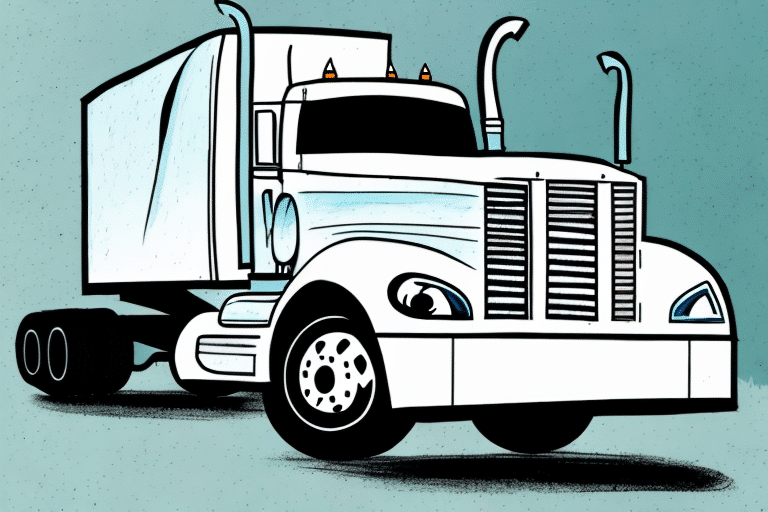Understanding Truck Abandonment
Truck abandonment refers to the illegal act of leaving a commercial vehicle unattended in a public or private location for an extended period without the consent of the property owner or relevant authorities. These abandoned trucks pose significant risks to public safety, the environment, and community aesthetics. Understanding the definition and ramifications of truck abandonment is crucial for effective enforcement and prevention.
Definition of Truck Abandonment
In legal terms, a truck is considered abandoned when it is left in a location without authorization and remains unclaimed for a period defined by local laws. This duration varies across jurisdictions, but it typically ranges from 24 to 72 hours. Abandoned trucks can be found on highways, residential areas, parking lots, and other public or private properties.
Risks and Impacts
Abandoned trucks can lead to numerous hazards, including:
- Public Safety Risks: Standing vehicles may block traffic, causing accidents or obstructing emergency services.
- Environmental Pollution: Abandoned trucks can leak oil, gasoline, and other hazardous materials, contaminating soil and water sources [EPA].
- Property Damage: Vandalism or theft from abandoned trucks can lead to significant property losses for owners and communities.
- Aesthetic Decline: The presence of abandoned vehicles can make neighborhoods look neglected, reducing property values and community pride.
- Health Hazards: Accumulation of abandoned trucks can attract pests and rodents, contributing to disease spread [CDC].
Legal Consequences of Truck Abandonment
Abandoning a truck can result in severe legal repercussions, including financial penalties, impoundment of the vehicle, and even criminal charges. The extent of the consequences varies depending on the jurisdiction and the severity of the abandonment.
Fines and Penalties
Truck owners may face substantial fines for abandoning vehicles. These fines can range from a few hundred to several thousand dollars. For example, in California, fines for abandoned vehicles can exceed $1,000 per incident [California DMV].
Potential for Criminal Charges
In cases where abandonment results in significant public safety risks or environmental damage, criminal charges may be filed. This can lead to imprisonment or additional fines, depending on the severity of the offense [U.S. Department of Justice].
Civil Liabilities
Truck owners may also be liable for civil damages resulting from the abandonment. Property owners or affected parties can file lawsuits seeking compensation for damages caused by the abandoned vehicle, such as property damage or environmental cleanup costs [Legal Information Institute].
Reporting and Removing Abandoned Trucks
Prompt reporting and removal of abandoned trucks are essential to mitigate their negative impacts. The process involves notifying the appropriate authorities and following established guidelines for vehicle removal.
Reporting Procedures
Individuals who encounter an abandoned truck should report it to local law enforcement, public works departments, or designated transportation agencies. Key information to provide includes:
- Vehicle make, model, and color
- License plate number
- Exact location
- Condition of the vehicle
- Any visible hazards (e.g., leaks, debris)
Many jurisdictions offer online reporting forms, hotlines, or mobile apps to facilitate efficient reporting [Federal Highway Administration].
Removal Guidelines
The removal of abandoned trucks typically follows a standardized procedure:
- Verification: Authorities verify whether the truck is abandoned by checking ownership records and attempting to contact the owner.
- Notification: A warning notice is placed on the vehicle, giving the owner a specified period to remove it.
- Towing: If the owner fails to comply, the truck is towed to an impound lot or salvage yard, with costs billed to the owner.
- Disposal: Depending on the truck's condition, it may be sold, donated, or dismantled for parts [EPA Abandoned Vehicle Recovery].
Legal Framework and Requirements
Removing an abandoned truck must adhere to specific legal standards to protect the rights of truck owners and ensure environmental safety.
Due Process
Authorities must follow due process, which includes verifying abandonment status, notifying the owner, and allowing a reasonable time for the owner to claim the vehicle. Failure to adhere to due process can result in legal challenges and liability for improper removal [Nolo on Due Process].
Environmental and Safety Standards
When handling abandoned trucks, authorities must comply with environmental and safety regulations to prevent additional harm. This includes safely draining fluids, removing hazardous materials, and appropriately disposing of waste [EPA Regulations].
Enforcement and Best Practices
Effective enforcement of truck abandonment laws requires coordinated efforts among law enforcement, public agencies, and the community. Implementing best practices can enhance the efficiency and effectiveness of these efforts.
Role of Law Enforcement
Law enforcement agencies are responsible for identifying, reporting, and enforcing penalties against individuals who abandon trucks. They collaborate with other agencies to coordinate removal efforts and ensure compliance with laws [FBI Public Integrity].
Best Practices for Prevention
Preventing truck abandonment involves proactive measures such as:
- Providing Adequate Parking: Ensuring sufficient and secure truck parking facilities to discourage abandonment.
- Educating Truck Owners: Raising awareness about the legal and financial repercussions of abandoning trucks.
- Implementing Incentives: Offering rewards or reduced fees for timely removal of abandoned vehicles.
- Strengthening Regulations: Enforcing strict penalties for offenders to deter future instances.
Impact on Environment and Community
Abandoned trucks can have far-reaching effects on both the environment and community well-being.
Environmental Hazards
Leaked fluids from abandoned trucks can contaminate soil and water, harming ecosystems and posing health risks to humans and wildlife. Environmental cleanup can be costly and time-consuming, diverting resources from other critical areas [EPA].
Community Well-being
The presence of abandoned trucks can lower community morale, reduce property values, and deter potential investors or residents. Additionally, they can create perceived safety issues, making neighborhoods less desirable places to live and work [U.S. Census Bureau].
Economic Implications and Future Trends
Truck abandonment has significant economic implications for both local communities and broader economic systems. Understanding these costs and anticipating future trends is essential for developing effective policies.
Economic Costs
The economic burden of abandoned trucks includes costs related to vehicle removal, environmental cleanup, and lost property values. Studies estimate that abandoned vehicles can cost municipalities millions annually in cleanup and maintenance expenses [Alternative Fuels Data Center].
Future Legislation
Future trends in legislation may address emerging challenges such as the integration of technology in tracking abandoned vehicles, the impact of autonomous trucks, and the need for standardized regulations across states or countries. Additionally, there may be increased focus on environmental sustainability and data-driven enforcement strategies [U.S. Department of Transportation].
Conclusion
Truck abandonment is a multifaceted issue that affects public safety, environmental health, and economic stability. By understanding the legal definitions, consequences, reporting mechanisms, and best practices for prevention and removal, stakeholders can collaborate to mitigate the negative impacts of abandoned trucks. Future legislative and enforcement efforts should continue to evolve to address emerging challenges and promote responsible truck ownership and operation.




















